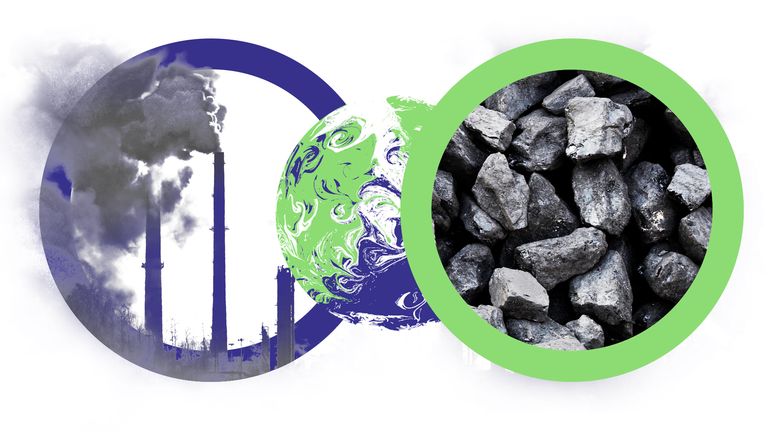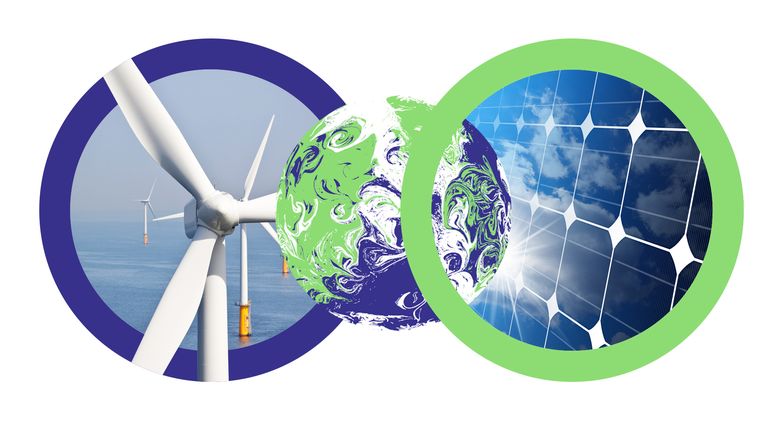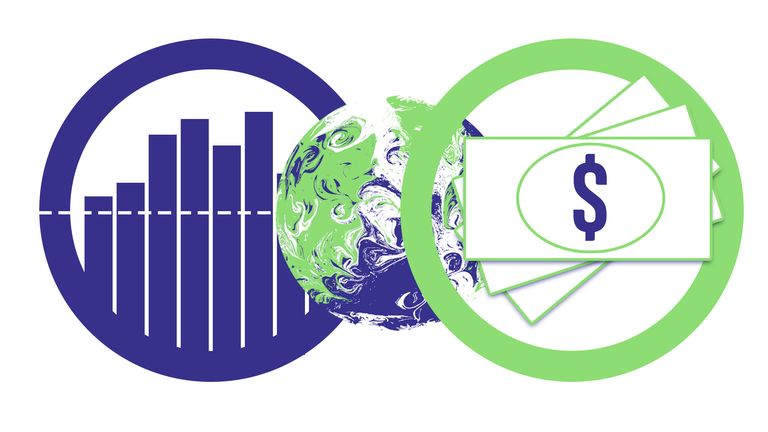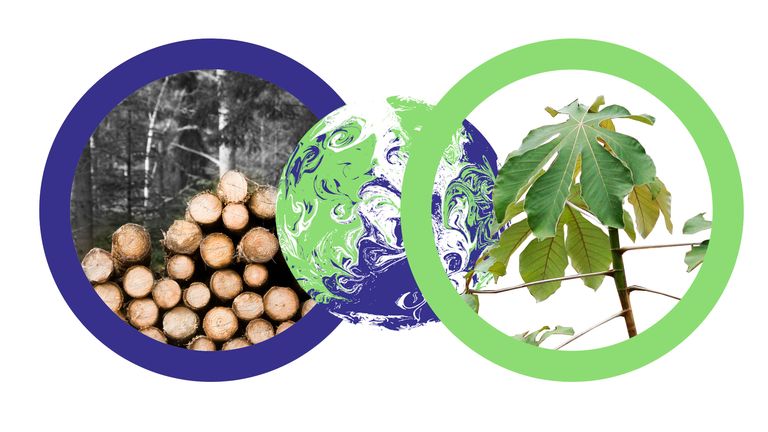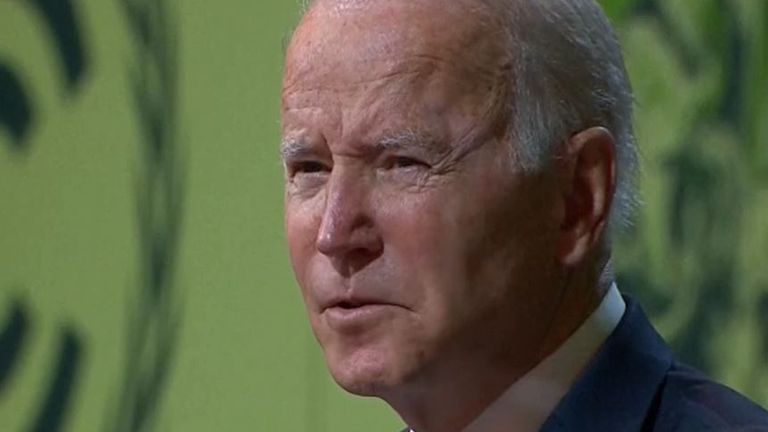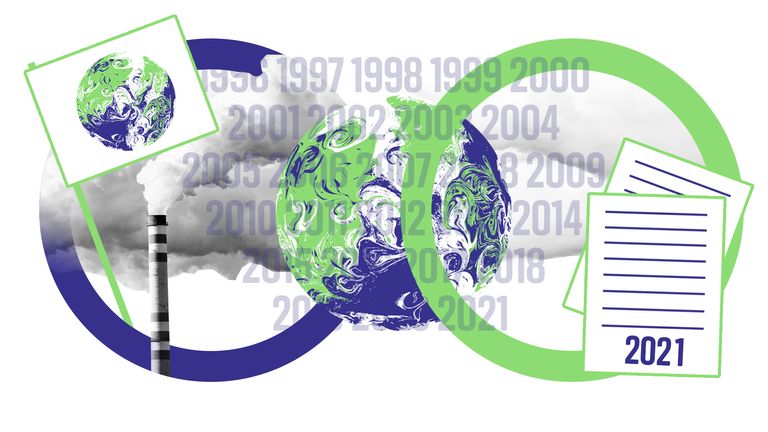No products in the basket.
Climate Blog
COP26: The key agreements from Glasgow’s climate summit
World leaders have made a series of climate pledges at COP26 culminating in an agreement to strengthen emissions-cutting targets for 2030 by the end of next year.
A lot has happened over the past two weeks in Glasgow. Here is a look back at all the key agreements.
Follow the latest coverage in our COP26 live blog.
Glasgow Pact – The journey to net-zero and 1.5C
The COP26 climate talks have agreed to get countries to strengthen their emissions-cutting targets for 2030 by the end of next year in a bid to limit dangerous warming.
Ministers and negotiators have also sent a signal on the shift away from the world’s dirtiest fuel, with a deal calling for efforts to escalate the “phase down” of unabated coal, as well as the phasing out of inefficient fossil fuel subsidies.
The Glasgow Pact was watered down at the last minute – following a push by India and China – from escalating the “phase out” of unabated coal, to “phase down”, prompting angry responses from European and vulnerable countries.
But it is the first explicit mentions of fossil fuels in a UN climate agreement.
The deal aims to keep limiting global warming to 1.5C above pre-industrial levels “alive” or within reach, in the face of a huge gap between the action countries are taking and what is needed to meet the goal.
In the wake of the “Glasgow Pact” being gavelled through – more than 24 hours after the official finishing time of the conference, there were warnings that the 1.5C goal was “on life support”.
UN secretary general Antonio Guterres said the approved texts from COP26 were a compromise that took important steps, but the “collective political will was not enough to overcome some deep contradictions”.
He warned: “Our fragile planet is hanging by a thread. We are still knocking on the door of climate catastrophe.”
He called for an end to fossil fuels subsidies, a phase out of coal, a price on carbon, building resilience of vulnerable communities against the impacts of climate change and to make good on the long-promised 100 billion US dollar climate finance commitment to support developing countries.
He said: “We did not achieve these goals at this conference. But we have some building blocks for progress.”
Coal and fossil fuels
More than 40 countries including 23 new ones have pledged to phase out coal, the most polluting fossil fuel. Members include heavy coal users like Poland, Ukraine and Vietnam.
Major countries said they would phase it out in the 2030s, with poorer countries committing to the 2040s.
Australia, the world’s second largest exporter of thermal coal – used in coal-fired power stations – failed to add its name to the pledge, however.
The draft COP agreement also changes the wording on coal – from asking countries to “accelerate the phasing out of coal and subsidies for fossil fuel” to phasing out “unabated coal power and inefficient subsidies for fossil fuels”.
This gives countries who rely heavily on coal the chance to reduce their commitments.
Separately, at least 20 countries including Italy, Canada, the US and Denmark together with public finance institutions promised to stop public finance to overseas fossil fuels by the end of 2022, diverting the cash into clean energy instead.
Green technology
More than 40 world leaders – including from the US, India, Australia, Turkey, the EU and China – have agreed on a UK-led plan to speed up affordable and clean technology worldwide by 2030.
The first five goals have been dubbed the “Glasgow breakthroughs” and cover more than 50% of global emissions.
They are:
• Power: Clean power becomes the most affordable and reliable option worldwide
• Road transport: Zero-emission vehicles become the new normal and are accessible, affordable and sustainable in all regions
• Steel: Near-zero emission steel is the preferred choice in global markets, with efficient use and near-zero emission steel production established and growing in all regions
• Hydrogen: The aim is for affordable renewable and low carbon hydrogen to be globally available
• Agriculture: Climate-resilient, sustainable agriculture becomes the most attractive and widely adopted option for farmers everywhere
Finance
The EU has launched a programme to finance breakthrough climate innovation alongside Bill Gates and the European Investment Bank.
Worth one billion euros, the EU Catalyst Programme will finance new technologies and allow them to be used on the ground in Europe.
The UK government announced that financial firms controlling about 40% of global assets – $130trn (£95trn) – have signed up to 2050 net-zero goals including limiting global warming to 1.5C.
UK Chancellor Rishi Sunak also said Britain will become the first country to force all financial institutions and listed companies in the UK to publish plans on how they will transition to net zero from 2023.
Japan has committed an extra $10bn climate finance over five years, meaning rich countries could hit the $100bn a year target one year sooner than expected, US climate envoy John Kerry claimed, if it leveraged extra money alongside.
Five countries, including Britain and the US, and a group of global charities have promised $1.7bn to support indigenous people’s conservation of forests and strengthen their land rights.
Meanwhile, the Scottish government has pledged £1m to support victims of climate disasters. Nicola Sturgeon said her government would partner with the Climate Justice Resilience Fund to “address loss and damage” caused by climate change.
Deforestation
Prime Minister Boris Johnson detailed a pledge to halt and reverse deforestation – dubbed an end to the “great chainsaw massacre” – and land degradation by 2030.
More than 100 countries representing 85% of the world’s forests have signed up – including Brazil, Russia, Canada, Colombia, Indonesia, and the Democratic Republic of the Congo.
It is underpinned by £14bn ($19.2bn) in public and private funding.
The president of Brazil, Jair Bolsonaro, whose country is home to a large part of the Amazon, said: “Forests are important to me because they cover more than 60% of my country.”
“We are committed to eliminating illegal deforestation by 2030,” he added.
Farming
Forty-five countries pledged urgent action on making farming more sustainable.
As well as the commitments on methane, signatories promised to invest in green agricultural practices and protecting nature.
The UK said it is aiming for 75% of farmers to engage in low carbon practices by 2030, while Germany promised to lower emissions from land use by 25 million tonnes by the same year.
Brazil said it will extend its low carbon farming programme to 72 million hectares by the end of the decade, reducing emissions by one billion tonnes.
Transport.
The Clydebank Declaration for green shipping corridors has committed 22 countries to creating at least six zero-emission maritime routes by 2025.
Signatories hope to see “many more” green shipping corridors by 2030.
A total of 34 countries committed to stopping the sale of non-electric vehicles by at least 2040, including several leading markets that pledged to do it by 2035.
The agreement was also signed by cities, car manufacturers and financial institutions, but not by the governments of three of the world’s biggest car markets – the US, Germany and China.
Methane
The US and the EU have launched an initiative to cut methane, a powerful greenhouse gas that comes from sources including fossil fuel extraction and livestock farming.
Dozens of heads of state have signed up to the pledge, which commits to countries cutting methane emissions by 30% by 2030.
US and China
The US and China signed a rare joint declaration that commits the two biggest polluters in the world to “enhanced climate actions that raise ambition”.
It made promises on methane emissions, the transition to clean energy and decarbonisation, and plans to implement them in the “critical decade of the 2020s”.
John Kerry described it as an “imperative to cooperate”, while China’s top negotiator Xie Zhenhua said there was “more agreement between China and the US than divergence”.
The Galapagos
Ecuador has vowed to expand the Galapagos reserve by almost half.
Speaking at COP26, President Guillermo Lasso confirmed a new reserve of 23,000 square miles will be established around the islands.
The new area will expand upon an existing marine reserve of around 50,000 square miles.
Island nations are particularly vulnerable to climate change due to rising sea levels as temperatures soar.
For full coverage of COP26, watch Climate Live on Sky channel 525.
Follow live coverage on web and app with our dedicated live blog.
Get all the latest stories, special reports and in-depth analysis at skynews.com/cop26


